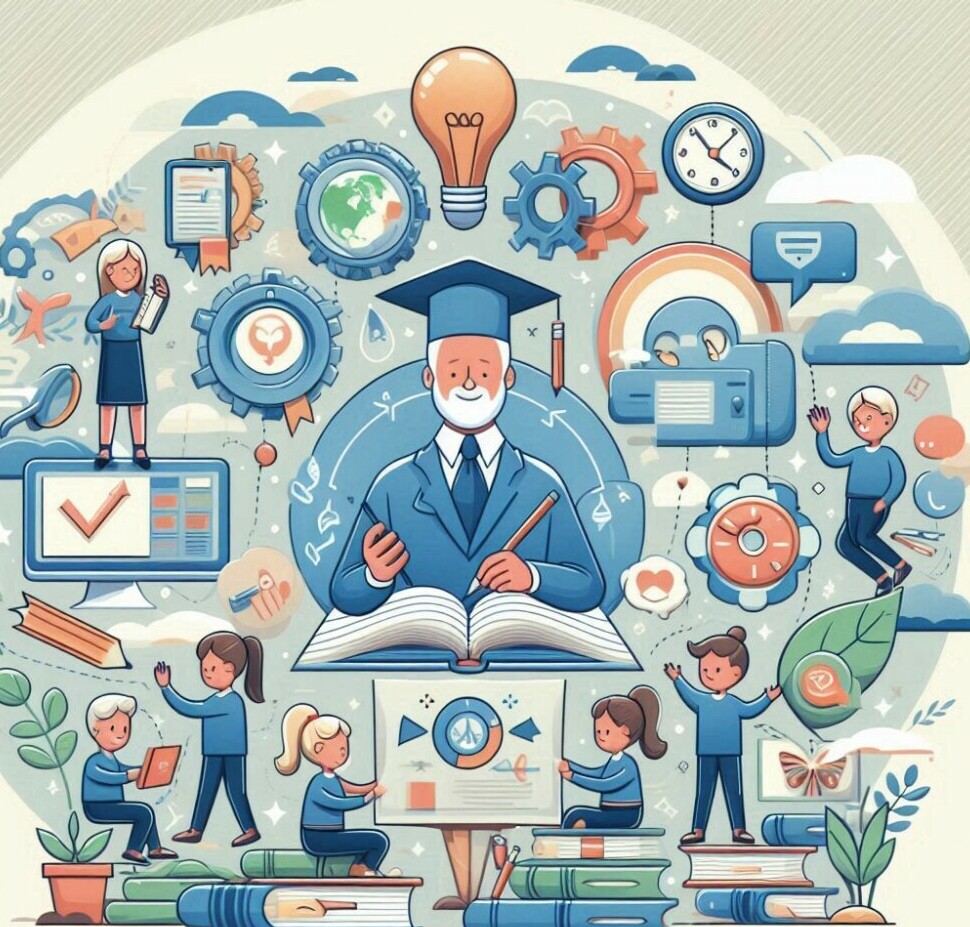
In the modern era, technology has become an integral part of daily life, transforming how we communicate, work, and entertain ourselves.
Technology is weaving itself deeper into our lives every day, transforming almost every aspect, including our health. From regulating our sleep patterns with smartwatches to managing chronic diseases through mobile apps, technology is making huge strides in healthcare.
This digital transformation brings both excitement and concern. It’s important to understand these changes and how they impact our well-being. With healthcare costs rising and efficiency becoming crucial, technology could be the game-changer we’ve been waiting for.
In essence, this article is a deep dive into the myriad ways technology affects our health. We’ll explore its impacts on different demographics, particularly children, and look at how information technology is revolutionizing healthcare. The goal is to help you navigate this tech-health landscape better and make informed decisions.
The Dual-Edged Sword: How Technology Impacts Health
Technology in healthcare has transformed the way we experience and manage our well-being. On one hand, it brings a slew of benefits that make our lives easier and our health management more efficient. Think about the ability to consult with doctors from the comfort of your home using telemedicine or the way fitness apps help you track your exercise routines and dietary habits. Also, advanced diagnostic tools can detect diseases earlier, leading to better outcomes.
But it’s not all rosy. With convenience often comes complacency. The rise in sedentary lifestyles due to increased screen time is a mounting concern. More people are working from home, leading to less physical activity, which can result in various health issues like obesity, cardiovascular diseases, and posture problems. Additionally, digital addiction isn’t just a buzzword. The compulsive need to check our phones can mess with our mental peace, contributing to anxiety and depression.
There are also specific case studies that illustrate these dual impacts. For instance, wearable health technology like fitness trackers can motivate people to stay active. On the flip side, excessive use of smartphones and tablets often leads to ‘tech neck,’ a term coined for the neck pain attributed to prolonged use of digital devices.
While technology offers numerous advantages, it pays to be mindful of its downsides. Balance is the name of the game. Utilize these tools to enhance your health, but don’t let them trap you in a cycle of dependency and inactivity. Be proactive in setting boundaries for screen time, incorporate regular physical activity into your routine, and don’t underestimate the importance of real-world social interactions.
When it comes to kids, technology is a double-edged sword too, but with stakes that feel a lot higher. On one side, educational apps and interactive learning tools can be incredible. They offer personalized learning experiences, making education more accessible and engaging. Imagine learning math through fun games or exploring the solar system with just a few swipes.
Yet, excessive screen time can take a toll on kids’ physical and emotional well-being. It’s easy for screen time to spiral out of control, leading to issues like sleep disturbances, reduced physical activity, and behavioral problems. The blue light emitted from screens can interfere with sleep patterns, and too much couch time might mean they’re missing out on essential physical play.
Parents find themselves in a tricky spot here, trying to balance the pros and cons. One useful strategy is setting clear rules about screen time. This could mean no screens during meals, keeping devices out of bedrooms, and having tech-free periods, especially before bedtime. Engaging in tech-related educational activities together can also be a wonderful bonding time.
Consider the content too. Not all screen time is created equal. There’s a significant difference between binge-watching cartoons and engaging with educational material. Encouraging your kids to use technology as a tool for learning and creativity rather than just entertainment can open up new avenues for growth and development.
Finally, just as essential as monitoring screen time is being a role model. Kids often imitate the adults around them. So, adopting healthy tech habits yourself can naturally encourage them to follow suit. It’s about building a balanced relationship with technology that supports their well-being and enriches their lives.
Information Technology in Healthcare: A Revolution in Progress
Technology in healthcare isn’t just about gadgets; it’s about creating systems that make caregiving more efficient and effective. Electronic Health Records (EHRs) are a game-changer in this regard. These digital records make patient information accessible to healthcare providers at the click of a button, improving accuracy in diagnosis and treatment. You don’t have to worry about paperwork getting lost or errors cropping up in transcription.
Health informatics and data analytics are pushing boundaries even further. Through big data, healthcare facilities can identify trends and make data-driven decisions, potentially predicting disease outbreaks and optimizing treatment plans. The ability to analyze vast amounts of data helps in understanding patient outcomes, streamlining operations, and cutting costs.
Though the benefits are substantial, there are challenges to consider. Privacy concerns loom large with the increasing digitalization of health data. Ensuring that patient information remains confidential and secure is paramount. Cybersecurity threats are a real risk, and breaches can lead to serious consequences. Therefore, robust security measures and regular audits are essential.
Ethical considerations also come into play. Who owns the data? How should it be used? These are questions that need to be addressed as we navigate this digital landscape. It’s crucial to strike a balance between leveraging technology for better health outcomes and maintaining ethical standards.
The advancements in health IT are undeniable, but what’s important is their thoughtful implementation. From AI-powered diagnostics to telehealth services, the potential is immense. However, addressing the accompanying challenges with a proactive approach will ensure that these technologies serve to benefit everyone.
Future Outlook: Mitigating Negative Effects and Enhancing Positive Outcomes
With every new technology comes the potential for both positive and negative effects on health. The future lies in mitigating the latter and amplifying the former. One innovative approach is the use of AI and machine learning to predict health issues before they become serious. Imagine your smartwatch not only tracking your heart rate but also alerting you to early signs of a potential health problem.
Virtual reality (VR) has significant potential in therapeutic settings. VR can offer immersive environments for physical rehabilitation and mental health treatments. Think about veterans undergoing VR therapy to deal with PTSD or stroke patients using immersive environments for motor skill recovery.
Policy and regulation also play crucial roles. Governments and health organizations must establish guidelines to ensure that technology is used responsibly. Setting standards for data privacy, ethical AI use, and healthcare IT security is essential for building trust and fostering innovation in the sector.
Educating the public about the wise use of technology in health can’t be overstated. People need to understand both the benefits and the pitfalls. Community programs, seminars, and online resources can be valuable tools for spreading awareness and building digital literacy.
Looking ahead, new technologies like 5G and blockchain may revolutionize the way healthcare services are delivered. Faster internet speeds can make telehealth more seamless, and blockchain can offer secure ways to handle sensitive health data. The potential is vast, but it’s up to us to navigate this landscape thoughtfully, prioritizing the well-being of individuals at every step.
By understanding the potential risks and implementing strategies to address them, we can harness the power of technology without compromising our well-being. Embracing a balanced approach that integrates mindful usage, regular physical activity, and mental health awareness can help us navigate the digital age healthily and sustainably. Ultimately, the key lies in striking a harmonious balance between embracing technological advancements and maintaining a commitment to our overall health.
Kindly share your comments and experiences below.
Are you a wealthy affiliate yet? Affiliate Marketing success.
Simplified. Turn your passion, hobby, or interest into your success Story! Join Wealthy Affiliate today: https://www.wealthyaffiliate.com?a_aid=4d039820
**Here’s a little transparency: Our website contains affiliate links. We may receive a small commission if you click and make a purchase. Don’t worry, as there’s no extra cost to you. It’s a simple way to support our mission of bringing you quality content.
Follow me on social media!

I found your article on technology and its effects on health incredibly thought-provoking. It strikes a perfect balance between highlighting the benefits of technological advancements in healthcare and addressing the potential risks involved, especially for children. As someone who has experienced both the conveniences and challenges of modern health tech, I appreciate the emphasis on ethical considerations and data privacy. The discussion on screen time’s impact on kids really hit home, underscoring the need for mindful use of tech is extremely vital.
Hi Kaleem,
I appreciate your insightful contributions to the article. It’s very important to consider both the benefits and risks of modern health technology, especially in terms of children and data privacy.
Thank you for mentioning your personal experience; it underscores the necessity of these discussions.
I’m glad you found the article on the need for mindful tech use insightful and helpful.
Thank you for your comment and thoughtfulness.
Regards,
Makinde
Wow, this article is such an eye-opener! I really enjoyed how it navigates through the intricate relationship between technology and health. The future you describe, with predictive analytics and AI-driven personalized medicine, sounds incredibly promising. It’s exciting to think about how these advancements could transform healthcare by tailoring treatments to individual needs. Protecting patient data and preventing biases in AI decisions are crucial to ensure that these technologies benefit everyone fairly.
Overall, this article provides a balanced view of the technological advancements in healthcare, highlighting both the benefits and the challenges. Thanks for sharing such thoughtful insights!
Hello Kavitha,
I appreciate your insight and contributions to the article.
The impact of technology, especially with advancements like predictive analytics and AI-driven personalized medicine, holds immense potential. Protecting personal data and preventing bias are very essential in ensuring these innovations are maximized to the fullest by all.
I appreciate your thought on the balanced perspective on both the benefits and challenges of these technological advancements.
Thanks for reading the article and your insight.
– Makinde